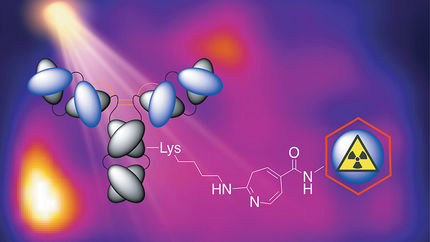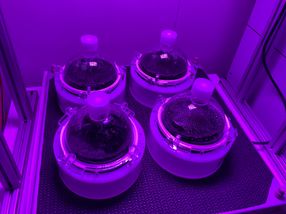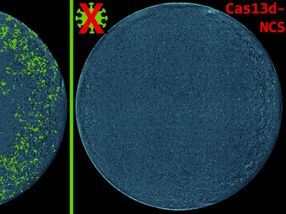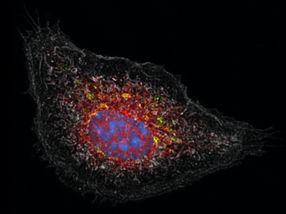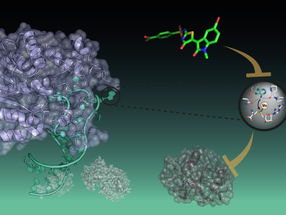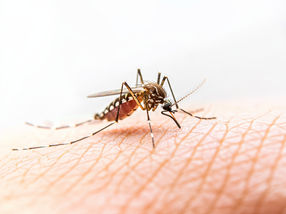Tumor-targeting system uses cancer's own mechanisms to betray its location
By hijacking a cancer cell's own metabolism, researchers have found a way to tag and target elusive cancers with small-molecule sugars. This opens treatment pathways for cancers that are not responsive to conventional targeted antibodies, such as triple-negative breast cancer.
Led by Jianjun Cheng, a Hans Thurnauer Professor of Materials Science and Engineering at the University of Illinois, researchers at Illinois and collaborators in China published their findings.
Targeted cancer therapies rely on specific markers on the surface of cancer cells. Scientists can design antibodies that seek out those markers and deliver therapeutic or imaging agents. However, some cancers are not eligible for this kind of treatment because they lack surface markers to target.
"For example, we would like to target triple-negative breast cancer. This is a deadly breast cancer, with low survival rates," Cheng said. "We don't have any targeted therapeutics so far, because it doesn't have any of the receptors on it that we normally target. Our question was, can we create an artificial receptor?"
The researchers found a way to mark the cells using a class of small-molecule sugars called azides. Once metabolized in the cell, they are expressed on the surface, and can be targeted by a molecule called DBCO.
"It's very much like a key in a lock. They are very specific to each other. DBCO and azide react with each other with high specificity. We call it click chemistry," Cheng said. "The key question is, how do you put azide just on the tumor?"
To make sure the azide would only be expressed on the surface of cancer cells, the researchers added a protective group to the azide sugar that could only be removed by tumor-specific enzymes. In normal tissues, the azide sugar simply travels through. In tumor cells, it is completely metabolized and expressed on the cell surface, creating specific targets for DBCO to deliver a cargo of cancer-treating drugs or imaging agents.
The researchers tested the azide-based targeting system in mice with tumors from colon cancer, triple-negative breast cancer and metastatic breast cancer.
"We found the tumors had very strong signals compared with other tissues," Cheng said. "For the first time, we labeled and targeted tumors with small molecule sugars in vivo, and we used the cancer cell's own internal mechanisms to do it."
Original publication
Other news from the department science
Most read news
More news from our other portals
See the theme worlds for related content
Topic world Antibodies
Antibodies are specialized molecules of our immune system that can specifically recognize and neutralize pathogens or foreign substances. Antibody research in biotech and pharma has recognized this natural defense potential and is working intensively to make it therapeutically useful. From monoclonal antibodies used against cancer or autoimmune diseases to antibody-drug conjugates that specifically transport drugs to disease cells - the possibilities are enormous

Topic world Antibodies
Antibodies are specialized molecules of our immune system that can specifically recognize and neutralize pathogens or foreign substances. Antibody research in biotech and pharma has recognized this natural defense potential and is working intensively to make it therapeutically useful. From monoclonal antibodies used against cancer or autoimmune diseases to antibody-drug conjugates that specifically transport drugs to disease cells - the possibilities are enormous

